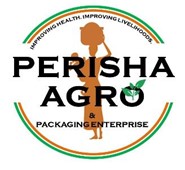Forest Africa supports local Zambian communities and the environment through agroprocessing and...


The ‘triple burden’ of malnutrition – undernutrition (underweight, stunting and wasting), overweight and obesity, and micronutrient deficiencies – is especially serious in developing countries, and acute in Africa. Even if some achievements have been made, especially in addressing childhood malnutrition, the progress in fighting malnutrition in all its forms is happening too slowly to achieve SDG n°2 by 2030.
Diets adopted have direct consequences for public health, sustainable development, and climate change. Current food consumption patterns also impose high health and environmental costs, which are not reflected in food prices. Adopting a more plant-based dietary pattern would not only reduce the cost of diets but also lower the health and environmental costs (FAO 2021). Therefore, considering shifts in the way we produce, process, and consume food and the impact it has on our environment are urgent.
While food production must keep pace with increasing demand, equitable food access and adequate food utilization must be ensured, as there are significant inequalities in nutrition outcomes within countries and populations (IFPRI 2020). Across all income groups, healthy and nutrient-adequate diets are three to over five times considerably more expensive than energy-sufficient diets. Nearly three-quarters of the African population cannot afford a “healthy” diet, and more than half cannot afford a “nutrient-adequate” diet. Even the “energy-sufficient” diet is out of reach for 11.3 percent of the continent’s population (FAO 2021). Nutritious foods, such as fruit, vegetables, and animal proteins, are relatively expensive when compared to staples such as cereals and starchy roots. Inequality in incomes and other means of subsistence explain large differences in access to diversified and nutritious food, and poorer households have little access to food storage, cooking equipment, clean water, and services, such as health care and basic nutrition education.
Making nutritious and safe foods available, accessible, affordable, and desirable for improved nutrition requires action from all stakeholders in the food system, including producers, processors, retailers, and consumers, in both private and public institutions. Local micro, small, and medium-sized enterprises (MSMEs) and businesses have a key role to play as they provide most of the food consumed in Africa. They play a key role in the supply chain in domestic markets, generate jobs and income, especially among youth, are closely linked to producers and rural areas, know the food preferences of their clients, and are rapid adopters of technologies and innovations. SMEs and businesses also serve institutional markets, such as government feeding programs and humanitarian agencies.
Join our Agrinnovators community forum to discuss and explore how to encourage innovations across agricultural value chains to transform food systems in Africa, promote sustainable agriculture, and leverage investment. Share insights, ask questions, and collaborate on innovative solutions for a greener future

Forest Africa supports local Zambian communities and the environment through agroprocessing and...

Perisha Agro and Packing Enterprise is Malawi's leading company in producing biofortified and...

Kenyan company producing 100% natural and gluten free snacks
Top-quality farm-fresh products that strengthen the community by offering meaningful employment, and making nutritious top quality products affordable and available to a growing world population
Tanwanian business addressing malnutrition through the production of nutritious product developed from agricultural produce, awareness campaigns, nutrition education and promoting production...
The processing and packaging company is Nigeria's first and largest supplier of healthy nutrient-rich fruit and nut snacks.
ReelFruit is Nigeria's largest fruit packaging and processing company that produces healthy snacks made from dried fruit and nuts. In the Innovations Session n°2 Affiong Williams explained how she...
Eden Tree promotes healthy eating habits by producing and packaging high-end fresh vegetables, fruit, herbs, spices and convenience foods, and by connecting farmers to markets.
Stawi Foods supports its local supplier farmers to access the market and produce food sustainably while providing access to affordable nutritious food to low-income Kenyan families.
Goshen Farm, a top Kenyan agribusiness since 2010, collaborates with over 4,000 smallholder farmers.
Les Céréales de Tatam processes grains produced in Mali (fonio, mil, rice, sorghum and maize) into high-quality nutrient-rich products for the local, regional and export markets. The company is...
Food and Nutrition Security: the contribution of MSMEs and businesses